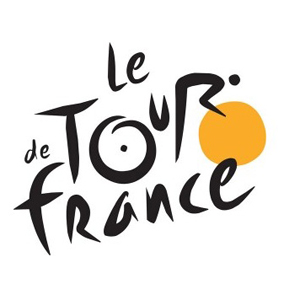Tour De France History
By Tour de France Campsites In Harrogate
The Tour de France was established in 1903 by newspaper L’Auto, in an attempt to increase its sales. The first race was won by Frenchman Maurice Garin. He won again the next year, but was disqualified after allegations that he had been transported by car or rail arose. Henri Cornet became the winner after the dispute was settled; he is the youngest to win the tour. Following the scandals in 1904, the scoring system was changed from being time-based to a points-based system, in which the cyclist who has the fewest points at the end of the race is victorious. This system lasted until 1912, when the time-based system was re-introduced. French cyclists were successful in the early tours; the first non-Frenchman to win the tour was François Faber of Luxembourg, who won in 1909.
Belgian riders were more successful before and after the First World War (which suspended the tour from 1915 to 1918). In the 1920s, trade teams dominated the tour; cyclists such as Nicolas Frantz won the tour with the Alcyon team. However, when Alcyon cyclist Maurice De Waele won the tour in 1929 while ill, the organisers decided to introduce national teams the following year, to stop team tactics from undermining the race. Because of the Second World War, the Tour de France was suspended from 1940 to 1946.
The yellow jersey (French: Maillot J), worn by the leader of the general classification

After the Second World War, no one dominated the Tour until Louison Bobet, who won three consecutive tours from 1953 to 1955—he was the first person to achieve this feat. This was bettered by the French cyclist Jacques Anquetil, who won four successive tours from 1961 to 1964. Anquetil, who also won in 1957, became the first to win five Tours. Anquetil’s five victories were matched when Belgian cyclist Eddy Merckx won four successive tours from 1969 to 1972 and the 1974 tour. Merckx is the only person to have won the general, points and king of the mountains classifications in the same tour. He achieved this in 1969, when he won his first tour.
Merckx looked to be heading for a record sixth tour victory in 1975, but Bernard Thévenet beat him, becoming the first French winner in seven years. Thévenet won again in 1977; however, he was eclipsed in following years by fellow Frenchman Bernard Hinault, who won consecutive tours in 1978 and 1979. Hinault won the tour at his first attempt in 1978; becoming one of 11 cyclists (including Anquetil, Merckx, Hugo Koblet and Fausto Coppi) managed to do so. In 1980, Hinault was going for a third consecutive win, but had to pull out because of tendinitis, and the tour was won by Joop Zoetemelk. Hinault returned in 1981 and won that race as well as the one after that. Hinault sat out the tour in 1983, and another Frenchman—Laurent Fignon—achieved victory. Fignon won again the following year, beating Hinault; Hinault recovered in 1985 to win his fifth tour.
American Greg LeMond became the first non-European to the win the tour in 1986. LeMond missed out in 1987 and 1988, but returned in 1989 to win the tour by finishing eight seconds ahead of Laurent Fignon, the smallest winning margin in the tour’s history. LeMond also won in 1990. In 1991, Spaniard Miguel Indurain won his first tour. Indurain came to dominate the tour, winning four more tours consecutively—making him the first person to win five consecutive tours. He tried to win a record-high sixth tour in 1996, but was beaten by Bjarne Riis, who later admitted to using Erythropoietin. Jan Ullrich and Marco Pantani won in 1997 and 1998, respectively; however, Pantani’s victory was overshadowed by doping scandals.
The 1999 tour saw the first victory of Lance Armstrong, which was followed by six more, for a total of seven consecutive victories. He was stripped of his titles in October 2012, when it emerged he had used performance enhancing throughout much of his career, including the Tour de France victories. Floyd Landis won the tour in 2006, but was later stripped of his title, after a drug-control test demonstrated the presence of a skewed testosterone/epitestosterone ratio. Alberto Contador won the 2007 tour with the Discovery Channel. The 2007 tour was also marred by doping scandals, thus Contador was unable to defend his title in 2008, as his Astana team was banned for its part. Fellow Spaniard Carlos Sastre of Team CSC won. Contador and Astana returned in 2009 to regain the title. He won the tour again in 2010, but was later stripped of his title after he was found guilty of doping. Runner-up Andy Schleck was awarded the victory.
Cadel Evans became the first Australian to win the tour in 2011. The following year, Bradley Wiggins became the first British cyclist to win the tour.
THANK YOU TO OUR SOURCE: WIKIPEDIA






